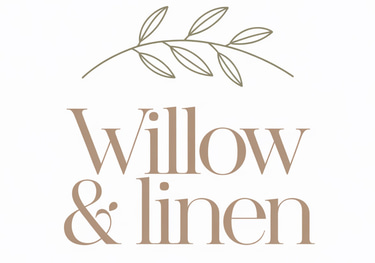Minimalism and Conscious Consumerism: Contradiction or Complement?


In recent years, both minimalism and conscious consumerism have gained traction as lifestyle choices aimed at living more mindfully. But are they truly compatible, or do they contradict each other? On the surface, minimalism encourages owning fewer things to reduce clutter and focus on what really matters, while conscious consumerism promotes purchasing items mindfully, prioritizing quality and sustainability over quantity. The two philosophies seem to align in many ways—but is it possible to be a conscious consumer without compromising the minimalist ethos?
What is Minimalism?
Minimalism is often defined by the mantra, “less is more.” The core idea is to live with fewer possessions, focusing on essential items that add true value to life. Minimalism advocates argue that the lifestyle leads to greater clarity, less stress, and more freedom from the cycle of endless consumption.
But does living minimally mean that you should avoid shopping altogether? Or is it more about choosing items carefully, with an emphasis on quality over quantity?
What is Conscious Consumerism?
Conscious consumerism, on the other hand, doesn’t necessarily mean buying less but instead buying better. This philosophy emphasizes making thoughtful choices about what we buy, considering factors like sustainability, ethical production, and longevity. Conscious consumers believe that every purchase has an impact—on the environment, on society, and on our personal lives.
Where Minimalism and Conscious Consumerism Clash
Here’s where the friction begins. Minimalism aims to reduce the number of items in your life, yet conscious consumerism often leads people to replace items with more sustainable or ethical versions. Does this mean the two are incompatible? For example:
Replacing Items: Many conscious consumers choose to replace conventional items with sustainable alternatives. But does this replacement process align with minimalist values, or does it simply contribute to more consumption?
Guilt Over Purchases: Minimalists may feel guilty over buying new items, even if they are eco-friendly or ethically made. This internal conflict often leaves people wondering if they are being “true” minimalists.
Paradox of Sustainable Products: The market for sustainable products is growing, but many items marketed as “sustainable” can feel like unnecessary extras. Are we falling into a trap where sustainability is used as a selling point rather than a genuine necessity?
How Minimalism and Conscious Consumerism Can Complement Each Other
Despite their differences, these lifestyles can work together beautifully. Here’s how:
Investing in Quality: Minimalism supports the idea of buying less but investing in quality, long-lasting items that don’t need frequent replacement. Conscious consumerism echoes this by promoting items made to last, often through sustainable materials or ethical production.
Mindful Purchases: Both minimalism and conscious consumerism encourage mindfulness in purchasing decisions. Minimalism urges us to ask, “Do I really need this?” while conscious consumerism adds another layer: “Is this purchase aligned with my values?”
Eco-Friendly Essentials: By focusing on essentials that are sustainable, minimalists can fulfill their need for simplicity without compromising on environmental responsibility. From natural materials to multi-functional items, there are ways to align both values.
Finding Balance
Ultimately, the choice to blend minimalism and conscious consumerism comes down to individual values and lifestyle. You can choose to own fewer, better-quality items that align with your values, creating a home that reflects both simplicity and sustainability. Minimalism doesn’t mean avoiding all purchases, and conscious consumerism doesn’t mean accumulating items mindlessly. By finding your personal balance, you can embrace a lifestyle that’s both mindful and intentional.
Willow & Linen
Embrace slow living and create cozy moments.
let's stay in touch
© 2024. All rights reserved.
